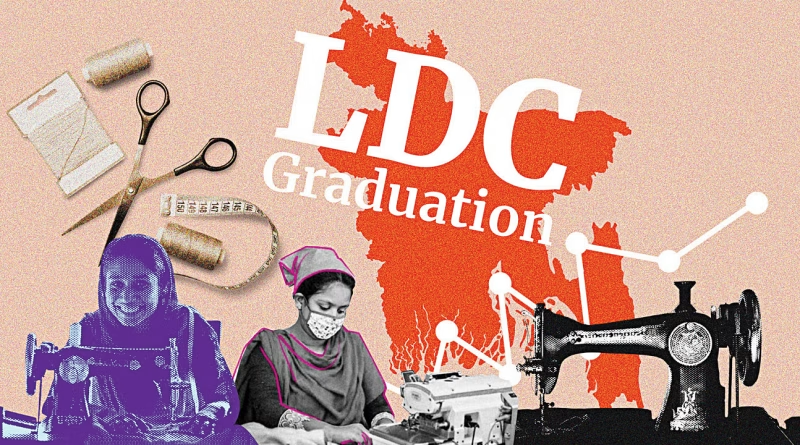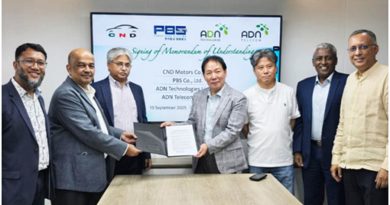Bangladesh should identify priority countries and regions for free trade agreements (FTAs) to secure market access and maximise benefits after its graduation from the least-developed country (LDC) category, when existing preferential trade facilities will phase out, economists and trade experts have suggested.
They also called for greater awareness of intellectual property rights (IPR) and stronger policy engagement with the private sector to attract investment, diversify exports, and create jobs.
The recommendations came at a roundtable on “Intellectual Property and Trade Transition Challenges: Best Approaches for Local Industries of Bangladesh”, organised by the Bangladesh Chamber of Industry (BCI) in Dhaka. BCI President Anwar-Ul-Alam Chowdhury presided over the event, where Sanya Reid Smith, senior consultant at Third World Network, made a keynote presentation.
Limited export basket a hurdle
Mostafa Abid Khan, component manager (SSGP) at the Economic Relations Division (ERD) and senior fellow at the Policy Research Institute of Bangladesh, said Bangladesh’s heavy reliance on a narrow range of products complicates FTA negotiations.
“Sixty per cent of the country’s total export earnings come from just 10 products. Instead of denying the challenges of FTA, which typically takes three to four years of complex negotiation, it is imperative to identify the key issues early and prepare accordingly,” he said.
EU, safeguard measures key concerns
Dr MA Razzaque, chairman of Research and Policy Integration for Development (RAPID), stressed that Bangladesh should move quickly to secure trade arrangements with countries where current market access will be lost after graduation.
On the European Union’s GSP-plus scheme, he noted that Bangladesh’s garments would not qualify for duty-free entry due to safeguard clauses.
“Bangladesh’s top-most priority should be to engage with the EU right now to get the safeguard measures relaxed,” he said, warning that new GSP rules, including the safeguards, will take effect from 2027.
Razzaque also flagged IPR as a “significant concern” post-graduation, particularly for pharmaceuticals. While Bangladesh is exempt from medicine patent protection until 2029, challenges will arise afterwards, he said.
Global trade shifting beyond economics
Dr Fahmida Khatun, executive director of the Centre for Policy Dialogue (CPD), observed that free trade had long driven growth, jobs, and human development, but geopolitical considerations are increasingly shaping trade deals.
“For many countries, dominance is now determined not only by economic strength but also by geopolitical positioning. This shift will likely become even more decisive in the future,” she said.
She urged Bangladesh to strengthen its intellectual capacity and innovation ecosystem, suggesting trademarks and branding as tools to boost competitiveness and ease compliance burdens.
Economic integration unavoidable
Dr M Masrur Reaz, chairman and CEO of Policy Exchange Bangladesh, said Bangladesh must deepen global economic integration despite inevitable trade-offs.
“To sustain export-led growth, Bangladesh needs greater participation in global value chains, diversification, and higher investment, including FDI,” he said.
On IPR, he added that stronger protection would support export diversification and attract investment in emerging sectors such as the digital economy and SMEs.
Call for strategy
Speakers agreed that while FTAs can deliver benefits, they also involve tariff cuts that reduce government revenue. Hence, a well-defined strategy is needed to ensure “win-win” outcomes.






